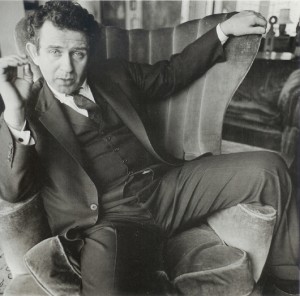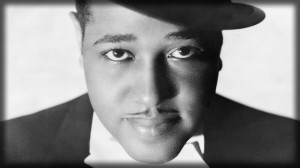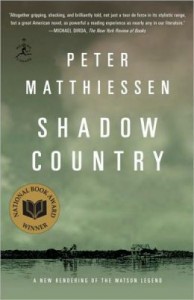(This is the first entry in The Modern Library Nonfiction Challenge, an ambitious project to read and write about the Modern Library Nonfiction books from #100 to #1. There is also The Modern Library Reading Challenge, a fiction-based counterpart to this list.)
 History has produced such a rich pile of devious political figures who spend every spare minute scheming and plotting their rise that today’s aspiring aristocrats, who can be found working every connection to get their kids into bright educational citadels and reliable sinecures, cannot come close to such cutthroat monomania. Yet there are also those who blunder into top office like bumpkins crashing high-class weddings through the simple repetitive act of placing one foot in front the other. William Lamb, aka Lord Melbourne, Prime Minister of the United Kingdom for eight years (1834, 1835-1841) and the subject of Lord David Cecil’s generous biography, was one such man.
History has produced such a rich pile of devious political figures who spend every spare minute scheming and plotting their rise that today’s aspiring aristocrats, who can be found working every connection to get their kids into bright educational citadels and reliable sinecures, cannot come close to such cutthroat monomania. Yet there are also those who blunder into top office like bumpkins crashing high-class weddings through the simple repetitive act of placing one foot in front the other. William Lamb, aka Lord Melbourne, Prime Minister of the United Kingdom for eight years (1834, 1835-1841) and the subject of Lord David Cecil’s generous biography, was one such man.
Melbourne was a ponderous speaker, a bookish man who reportedly dozed off in the middle of a conversation, a leader largely blind to the way people beneath his station lived, and a cautionary tale for any soul who avoids conflict. “He pondered, he compared, he memorized,” writes Cecil of Melbourne in middle age, just before his improbable political career begins, “the Elizabethan drama, for instance, he knew so well that he could repeat by heart whole scenes not only of Shakespeare but of Massinger; the margins of his books were black with the markings of his flowing, illegible hand.” Melbourne was so mind-bogglingly passive in his actions that he not only refused to intervene in his wife’s adulterous affairs, but he believed that each infidelity would pass with the fleeting speed of a common cold.
It’s easy to ridicule Melbourne and the people of that time (as the bitterly judgmental Carrie A.A. Frye and Philip Ziegler, another Melbourne biographer, have). Melbourne was cuckolded by Lord Byron. When Byron would no longer plant his flagpole in Lady Caroline Lamb, Melbourne’s wife gradually traded down in her boys on the side until she tapped Edward Bulwer-Lytton (best known today for inspiring a writing contest for wretched writing). Caroline would go on to write Glenarvon, an awful roman à clef which exposed the Byron episode and left the Lambs open to disgrace and derision. When his wife died, the lonely Melbourne sought solace with another Caroline (the remarkable Caroline Norton, a tireless crusader who would go on to campaign successfully for legislative acts rectifying the second-class status of women), there was an attempt at blackmail. When Queen Victoria ascended to the throne, Melbourne became her unlikely tutor and constant companion, wasting a good chunk of his late years because the young Queen required constant attention (much of it documented in Victoria’s journals, which are now digitized and accessible through arrangement with your library; Cecil is good enough to quote from many of these entries).
When I learned from Paul Douglass’s Lady Caroline Lamb just how abhorrently Melbourne had treated the largely forgotten badass Isaac Nathan, I began to grow less tolerant of Melbourne’s nonplussed nature. Nathan — a Jewish composer who wrote the groundbreaking Hebrew Melodies and suffered from the Jewish exclusion laws which denied him the ability to vote, run for office, or pursue justice in the courts against the scabrous opportunists who stole his lyrics, often without credit or compensation — befriended Caroline and set many of her words to music. Despite Nathan defending Caroline when she was disgraced (to the lively extent of fighting duels and even publishing a defense of her character in Fugitive Pieces after her death), Melbourne refused to pay Nathan for services rendered to the Whigs when Nathan really needed the cash, leaving Nathan humiliated and bankrupt and forced to flee to Australia, where he was to write Don John of Austria (the first opera composed and performed in Australia), became the first to research indigenous music and the first settler in this new and exciting country to be killed by a tram. (Don’t worry. Nathan died at 74. It was an accident.)
Melbourne’s clueless cruelty also emerged as organized labor became a more vocal part of British life. In March 1834, a group of laborers in Dorset started a trade-union and it was discovered that these men had administered secret oaths as part of the membership. Several of these men were arrested and sentenced to seven years of penal transportation. At the time, Melbourne was Home Secretary. Instead of overturning this remarkably harsh punishment, Melbourne asked the local magistrates about the temperament of these men. He was informed by these tendentious adjudicators that they were scoundrels. Melbourne, strictly on this point of secret oaths, confirmed this inhumane sentence. And during the next month, a group of thirty thousand marched to Whitehall to demand redress. He refused to see these leaders. And this austere decision set back the trade-union movement for years. As Cecil writes:
“So far from being criminals and revolutionaries, they were sober, respectable men enough, driven into lawless courses largely by ignorance and hunger and by the struggle to hang up their families on wages lately reduced to seven shillings a week. Melbourne was not to blame for not realizing their true characters. He was not there, and he had to trust to the reports of his subordinates.”
Melbourne also did not intervene when the revolting laborers of 1830 (during the Swing Riots) were sent to the gallows. Even Cecil is forced to accept the “painful and disturbing” prospect of an ostensibly kind-hearted man who wished to uphold the death sentence even when prisoners were not intended to be executed. Yet as callous as these consequences were, contributing to great unrest in the immediate years that followed, one has to remember that these terrible measures emerged in response to fears over recent turmoil in France and while parliamentary reform was being hashed out at a frustratingly glacial pace. There was a palpable anxiety that events across the English Channel would be reenacted at home.
How did such a man ascend to Prime Minister? Largely because there was nobody else. In 1834, King William IV needed someone who could keep variegated political factions together and, although the King didn’t care much for Melbourne, he liked him better than the other candidates. After all, this wasn’t exactly a position that you could leave open because you didn’t care for the present spate of résumés. Melbourne almost didn’t take the job. (Indeed, near the end of his stint as Prime Minister, he drifted forward with listlessness and exhaustion. Obligation seemed to be the only quality that kept him going.) An opportunistic little creep named Tom Young, who ensconced himself into Melbourne’s administrative circle through skillful cunning, was the one who played to Melbourne’s vanity and love for the classics, securing Melbourne’s commitment with the following words: “Why, damn it all, such a position was never held by any Greek or Roman: and if it only last three months, it will be worth while to have been Prime Minister of England.”
Melbourne was a weird Prime Minister. His strategy involved ridding himself of loud and querulous colleagues and keeping the new Government as calm as possible, even as he remained obdurate in his decision making. This approach did not sit well with some of the more boisterous statesmen. In a moment that could almost be pulled out of a David Lynch movie, Cecil describes Lord Henry Brougham visiting Melbourne’s house just after learning that he would not have a place in the new government. “Do you think I am mad?” shouts Brougham over and over again, his tone and gestures rising with violence as he repeats this question, almost anticipating the charismatic psychosis of Blue Velvet‘s Frank Booth. Yet the highly avoidant Melbourne could not fend off the King, assorted radicals, and any number of people who beseeched him for attention. “Damn it!” he cried to himself. “Why can’t they be quiet?” (In 1836, the aforementioned Norton blackmail episode went down, with Melbourne emerging largely unscathed even while living at Downing Street.)
I can’t entirely pardon Melbourne for some of his asshattery, but Cecil’s careful touch allowed me to understand and even empathize with some of Melbourne’s flaws, for he was also quite idiosyncratic. He stuffed his coats with endless notes. He would emit several strange sounds before beginning to talk. He would shout at random servants and ask them what time it was rather than consult a watch. These quirks allowed him to be liked by the right people, or, perhaps more accurately, tolerated because his actions were so endearingly inexplicable. Perhaps they felt sorry for him because of the Glenarvon episode, although Cecil doesn’t really address how that scandal besmirched his later life, long after Caroline was gone.
What I can say is that Cecil does such a classy job conveying the shenanigans of these often loutish patricians — the rampant adultery, the tolerated insane behavior, the strange manner that all this infiltrated British poetry and politics — that I was placed in the unusual position of fighting strong desires to throw my mind into the mire of the French Revolution, parliamentary protocol, and numerous other subjects. In the last two years, we have seen wild ideological sentiment (exacerbated by Twitter) and staunch stylistic preference (e.g., any polemical book on the lyrical essay) erode the possibilities of understanding human nuance. Melbourne reminds us that the more receptive we are to factual details that trouble or intrigue us, the more willing we are to commiserate with a person’s embarrassing qualities. Perhaps this was one reason why Melbourne was one of John F. Kennedy’s favorite books.
Cecil found both a subject and a tone that recalls John P. Marquand’s Pulitzer Prize-winning 1937 novel, The Late George Apley, published just two years before Cecil’s first half of Melbourne. He tells us baldly at the end that Melbourne’s death caused no great stir during the nineteenth century’s rampantly changing atmosphere. It is a crushing realization. Like Apley, Melbourne outlived his time and took in his personal and professional regrets with a resigned agreeableness. Melbourne’s life is often a sad portrait, yet we are somehow won over by him. Cecil’s book is a welcome reminder that if we’re going to judge someone, maybe we should buffet the impulse to castigate them with a smidgen of kindness, reserving our wrath for the real monsters. Without that vital flexibility that allows us to evolve, there may come a point when we outlive our time too. Sooner than Melbourne.
Next Up: Anne Lamott’s Operating Instructions!







































